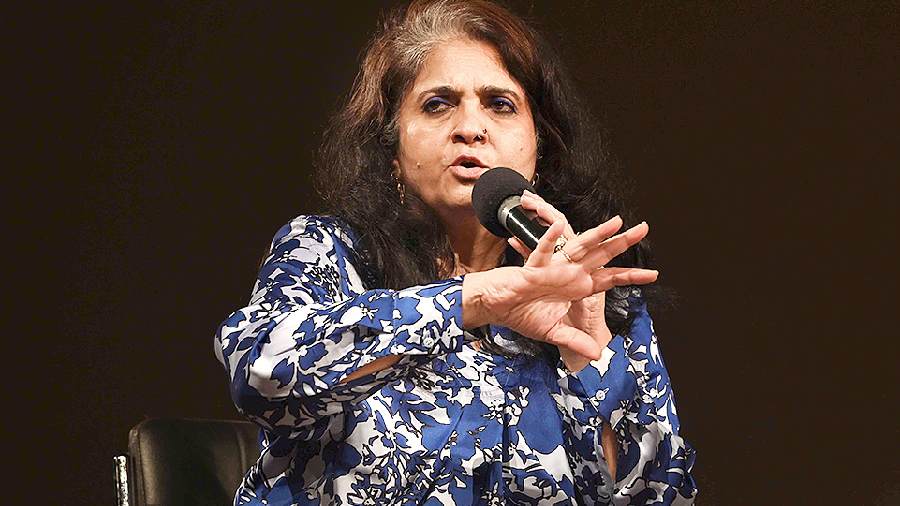Teesta Setalvad speaks at the Kolkata People’s Film Festival at Uttam Mancha on Saturday

Picture by Sanat Kr Sinha

She had just finished delivering the keynote address at the ninth edition of the festival.
“The question is very legitimate. I always tell younger people that we had an easier time when we were your age. Less pressure, less competition and less dire in terms of jobs,” Setalvad acknowledged.
“I can only say that don’t give up what you were doing when you were a student. You may not be able to do it every day. But make sure you give two to four hours a week. I understand life is very tough for young people. But I think four hours a week is not that tough if we want to do it,” she said.
Setlavad’s address was titled In search of justice in New India.
On June 24 last year, the Supreme Court upheld a special investigation team’s clean chit to then Gujarat chief minister Narendra Modi and 63 others over the 2002 riots, dismissing a plea from slain Congress leader Ehsan Jafri’s wife Zakia who had alleged a larger conspiracy.
Setalvad had supported Zakia in the court battle.
In the context of the conspiracy allegations, the court spoke of a “devious strategy to keep the pot boiling… for ulterior design”, which was cited by Gujarat police to arrest Setalvad, who spent 63 days in jail before getting bail.
On Saturday, Setalvad spoke on what she thought of the CAA, UAPA and “other policies and laws being implemented to stifle the voices and rights of all our different sections of people”.
We need to pay a little more attention to the ideas of justice that are being not just thrown down from the top but being accepted by certain sections of society. We need to assert that the idea of justice cannot be that thousands of people are compelled to walk home because the government has not thought of their transportation in an ill-declared lockdown. The idea of justice cannot be that giving jobs is not the demand of the day, that social welfare is not the demand of the day,” Setalvad said.
The hate speeches have to be countered with conversations, she said.
“Somehow we need to bring back the public discourse away from hate speech and vitriol, which seems to work during elections. How do we ensure that the poison of hate speech does not work? By ensuring that we are with the people. So that the poison that is generated by an idiom has been already countered within the conversations we have had and the discourse that we have developed,” said Setalvad.
She spoke at length on young activists like Umar Khalid, who are languishing in jail.
The original piece may be read here
